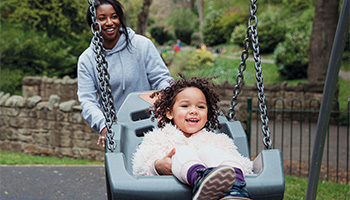Rise in children needing mental health services
- The pandemic has increased demand for children’s mental health services, as it tops the list of reasons for support required on Royal London’s protection policies
- A third of all children’s support referrals were for mental health issues, up from pre-pandemic levels of 23% in 2019
- The average age of children referred for support was just 12 years
According to mutual insurer Royal London, the number of referrals for children's mental health services, provided by support service RedArc, rose significantly during the pandemic as more youngsters struggled with a range of mental health issues. Recent figures show that the most common reason for referral in 2021 for children’s services was for mental health issues (32%), up from pre-pandemic levels of 23% in 2019.
The average age of children using the RedArc service was 12 years old, a third (34%) were 10 and under and the youngest referral was just 3 years old.
As well as practical advice and emotional support for the parents, in two thirds of cases (64%) external services like counselling sessions, private consultations and hypnotherapy treatment were organised for the child. Hypnotherapy has been found to be useful in cases of children with suicidal thoughts, eating disorders and anxiety.
Access to additional support services is provided with all Royal London protection policies bought through an intermediary. The service offers practical and emotional support from a dedicated nurse for customers and their families at any time. As well as offering additional services such as therapies, counselling or a second medical opinion, in the event of serious physical or mental illness, injury or bereavement, the nurses are on hand to provide crucial support, clarity around a diagnosis and answer any questions. Mental health issues can be an isolating experience and having a nurse there for support can be a real lifeline.
The top reasons among adults for RedArc referrals, through Royal London’s Helping Hand service in 2021, were bereavement (23%), cancer diagnosis (16%), mental health issues (15%) and orthopaedic issues (15%).
Jennifer Gilchrist, protection specialist at Royal London, said:
"The pandemic was exceptionally challenging for everyone from a health perspective. It has also caused huge disruption to the lives of children, young people and families, who suffered from a wide range of impacts on their health and wellbeing. School closures and suspension of their normal lives took its toll on the mental health and wellbeing of many children, who because of additional pressure on health services struggled to access help and support through the usual channels.
"The support that added value services like Helping Hand provides customers in their hour of need is vital, especially at a time where accessing help and support through the NHS often means significant waiting times. This is a great example of the tangible value protection cover provides in addition to its core purpose of providing a financial safety net. We encourage customers to make use of the service available through their policy and seek help as early as possible before any issue escalates."
Christine Husbands, managing director at Red Arc, said:
"We’re acutely aware of the wider demand the pandemic has created for Child and Adolescent Mental Health Services (CAMHS), which we’re seeing feed through to RedArc as families struggle to find help for their children’s mental health.
"The children and young people referred to us through their Royal London policy typically have quite complex conditions. Their parents have tried to manage it themselves, but ultimately they recognise that when things get really bad they need to seek additional help.
“In particular there’s been a significant spike in child anxiety and depression since the Covid pandemic, in part due to increased anxieties within the family, and long absences from school and other social and sporting opportunities.”
For further information please contact:
Neil Cameron, PR Manager
- Email: neil.cameron@royallondon.com
- Mob: 07919 171969
About Royal London
Royal London is the largest mutual life, pensions and investment company in the UK, with assets under management of £147 billion, 8.7 million policies in force and 4,232 employees. Figures quoted are as at 31 December 2022.
Learn more at royallondon.com





